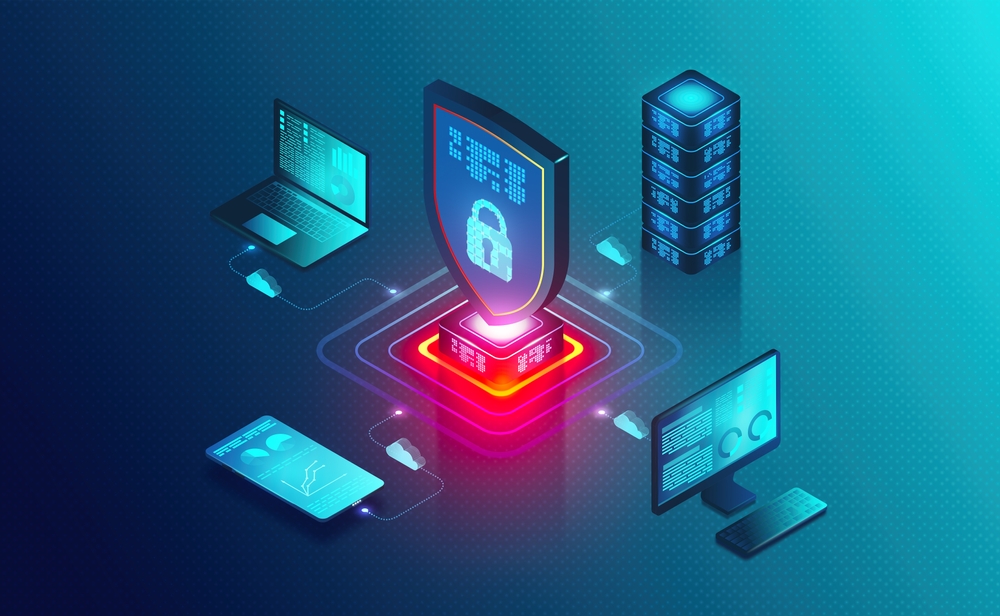
What is Endpoint Security and Why is it Important?
Endpoint security should be a component of every business’s cybersecurity program. But what exactly is endpoint security, why is it important, and what does an endpoint security solution include? In this post, we’ll break down the basics of endpoint security, and explain why it matters in keeping your business safe from cyber threats. Read on to learn more!
What is Endpoint Security?
Endpoint security refers to the practice of securing the various devices or “endpoints” that connect to a network. These endpoints can include desktop computers, laptops, smartphones, tablets, servers, and other devices that access or interact with a network. The goal of endpoint security is to protect these devices from various threats and vulnerabilities that could compromise the confidentiality, integrity, and availability of data and systems.
Why is Endpoint Security Important?
Here are seven key reasons why endpoint security is important:
- Protection against malware: Malware, including viruses, ransomware, Trojans, and spyware, can infect endpoints and spread throughout a network. Effective endpoint security solutions help detect and prevent malware from compromising devices and networks.
- Data protection: Endpoints often contain sensitive data. Securing them helps prevent data breaches and unauthorized access to confidential information, protecting both the organization and its customers.
- Insider threats: Endpoint security can help organizations monitor and manage potential insider threats, where employees or individuals with access to the network misuse their privileges intentionally or unintentionally.
- Remote work and BYOD: With the increasing trend of remote work and the use of personal devices (Bring Your Own Device, BYOD), securing endpoints becomes crucial. These devices can introduce additional risks to the network if not properly secured.
- Compliance requirements: Many industries have specific regulatory compliance requirements (e.g., HIPAA) that mandate endpoint security measures to protect sensitive data and ensure legal compliance.
- Cyberattacks and vulnerabilities: Cyberattacks are continually evolving, and vulnerabilities in operating systems, applications, and hardware can be exploited by attackers. Endpoint security helps identify and patch vulnerabilities to reduce the attack surface.
- Network hygiene: Maintaining good endpoint security practices contributes to overall network hygiene, reducing the likelihood of a breach or cyber incident.

What Does an Endpoint Security Solution Look Like?
A robust endpoint security solution typically includes these key components:
- Antivirus and Anti-malware: Endpoint security solutions often include antivirus and anti-malware software that scans for and removes known viruses, malware, and other malicious software from endpoints.
- Firewall Protection: Firewalls are crucial for monitoring and controlling network traffic. They act as barriers between trusted internal networks and external networks, preventing unauthorized access and protecting against network-based attacks.
- Data Encryption: Endpoint security may involve encrypting sensitive data stored on devices. Encryption ensures that even if a device is compromised, the data cannot be accessed without the decryption key.
- Patch Management: Regularly updating and patching software is vital to address vulnerabilities that could be exploited by attackers. Endpoint security solutions typically include patch management features to ensure all devices have the latest security updates.
- Device Control: Endpoint security solutions often provide device control features that allow administrators to define policies regarding the use of removable media, such as USB drives, to prevent the introduction of malware or unauthorized data transfers.
- Web Filtering: Web filtering tools block access to potentially harmful or inappropriate websites, reducing the risk of users inadvertently downloading malware or falling victim to phishing attacks.
Some advanced endpoint security solutions employ behavioral analysis techniques to detect and respond to abnormal or suspicious activities on endpoints. This can help identify and stop previously unknown threats.
Is endpoint security part of your cybersecurity strategy? Not only will it help to safeguard your network, protect sensitive data, and mitigate the risks associated with the modern threat landscape, you’ll have peace of mind knowing you are taking proactive steps to keep your business secure.
About Atlantic, Tomorrow’s Office
Atlantic is an award-winning office technology and IT solutions company providing Imaging Products, IT Support, Document Management, Cybersecurity and Managed Services to small and large companies in the New York City metropolitan area, and the Greater Philadelphia and Delaware Valley.
For the latest industry trends and technology insights visit ATO’s main Blog page.




